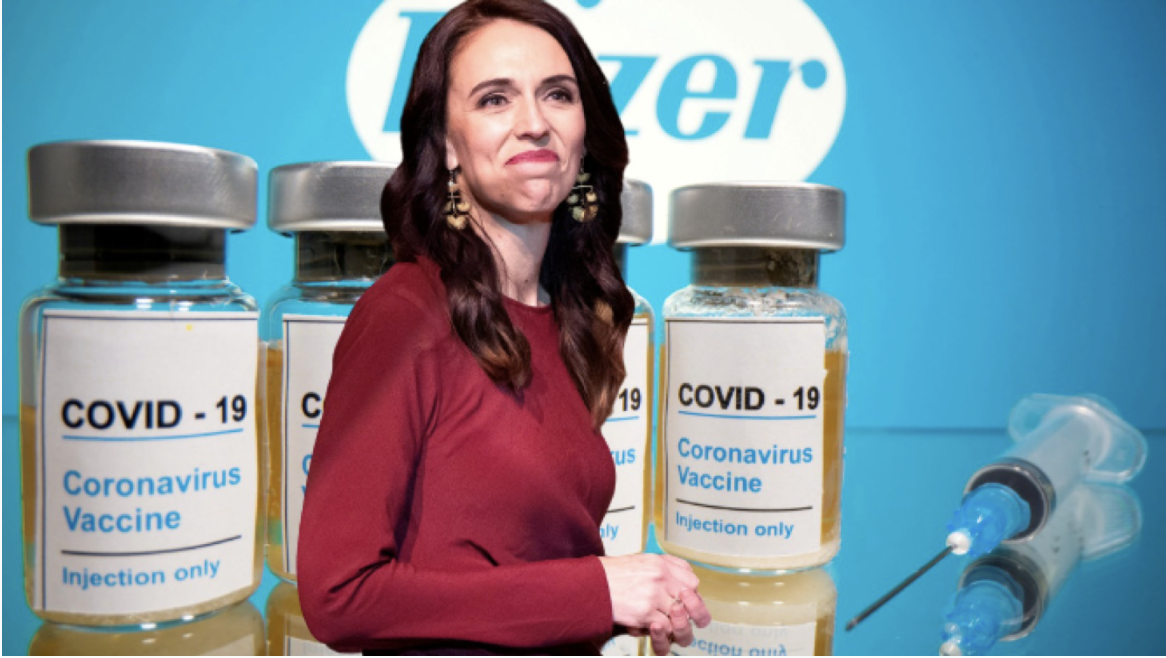It’s not a silly question to ask how information becomes misinformation when we know a whole lot more about Covid-19 today than we did 18 months ago. Beliefs held back then cannot be relied on today. Some information has become misinformation – without being acknowledged as such.
The line that is crossed for information to become misinformation is the accumulation of often very reliable, contradictory data.
The fact that Covid experts and doctors worldwide would seem to disagree about aspects of its treatment and prevention must surely sound alarm bells. Why aren’t we allowed to talk about vaccine safety, for instance? Why is the topic a political football? Why is the public being groomed to panic at the suggestion of a new Covid variant while we are expected to fall in gratefully behind the only solution offered – initially with the promise to reopen up borders?
NZ media are sluggish to acknowledge developments unless there is a generous dollop of hysterical fear in the mix. They aren’t reporting what happened in third world countries, in Africa, India and South America, where without access to a vaccine, doctors made do with whatever cheap, safe treatment was to hand.
Are those who are trapped in an endless cycle of economically destructive lockdowns where health services grind to a halt and people die because they miss medical checks and treatments any better off, seriously? Some take their own lives because of dire financial situations and/or mental health issues.
The government, with all its eggs in the vaccine basket, is disappointed at the limited public response to their extraordinarily kind offer. Cue Facebook’s response to up its censorship of the “misinformation” that is apparently holding people back from accepting their free Pfizer jabs.
“In a time of critical public vaccination efforts, Facebook says its campaign will help people in five Pacific Island countries and territories learn how to identify and combat misinformation.”
RNZ
When it seems even the world wide medical community remains unsure, what qualifies Facebook to be the arbiter of what is misinformation?
Our Covid strategy depends on a large percentage of the population developing antibodies to the SARS-CoV2 virus: herd immunity where the spread is halted, deaths taper off to zero and we can go about our pre-Covid lives as before.
Herd immunity appears to have occurred naturally in some poor Latin American countries.
“In May [2020], the Brazilian city of Manaus was devastated by a large outbreak of COVID-19. Hospitals were overwhelmed and the city was digging new grave sites in the surrounding forest. But by August, something had shifted. Despite relaxing social-distancing requirements in early June, the city of 2 million people had reduced its number of excess deaths from around 120 per day to nearly zero.
In September, two groups of researchers posted preprints suggesting that Manaus’s late-summer slowdown in COVID-19 cases had happened, at least in part, because a large proportion of the community’s population had already been exposed to the virus and was now immune.”
Meanwhile, we are still closing the border and hunkering down until we reach artificially achieved herd immunity. This week Covid expert Dr Shaun Hendy predicted the level of antibody protection as an extraordinarily high bar.
“For the Delta variant, that’s probably somewhere in the 90 percent mark, maybe up towards 100 percent”.
RNZ
Not that you should believe Hendy as he is the expert whose modelling last year predicted up to 80,000 Covid deaths in New Zealand unless strict measures were taken. Without hard evidence we can’t say if he actually saved 80,000 lives because his theory was not tested as we went into lockdown.
Lucky for Hendy, his herd immunity theory won’t be tested either. Predictions of Covid antibody levels in the community are calculated on the basis of fully vaccinated people. As at 29 June a mere 444,546 New Zealanders had received both doses of the Pfizer vaccine. A piddly little drop in the bucket. Forget 2-3 years. At this rate we will be in and out of lockdown for the next decade or more.
Despite the widely accepted vaccine efficacy, other important questions go begging to be answered. Does the vaccine protect against current and future variants, how long does immunity last, how deadly are the existing variants and what level of adverse reaction and mortality can we expect? All reasonable questions in a risk-benefit analysis.
There is a very reliable way to establish the level of herd immunity and it is testing blood samples for Covid-19 antibodies.
“Immunologist Ester Sabino at the University of São Paulo, Brazil, and her colleagues tested more than 6,000 samples from blood banks in Manaus for antibodies to SARS-CoV-2.”
Nature.com
“We show that the number of people who got infected was really high — reaching 66% by the end of the first wave,” Sabino says. Her group concluded that this large infection rate meant that the number of people who were still vulnerable to the virus was too small to sustain new outbreaks – a phenomenon called herd immunity. Another group in Brazil reached similar conclusions.”
If the government acknowledged and answered our questions around vaccine safety, and provided antibody testing, the vaccine uptake might either improve or it might not depending on how palatable the answers were.
Please share this article so that others can discover The BFD

